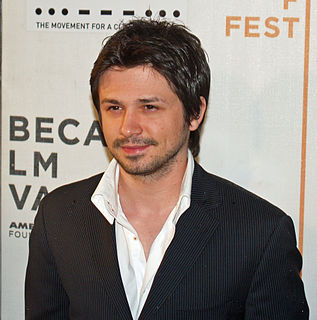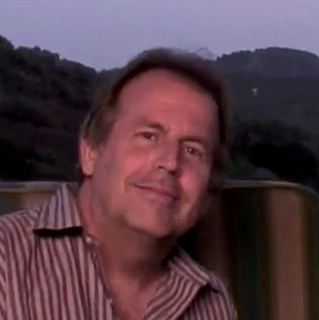A Quote by Craig Mazin
When you're writing a feature film, the moment you begin Page 1, you are in a sweat that you're running out of pages.
Related Quotes
A book is a human-powered film projector (complete with feature film) that advances at a speed fully customized to the viewer's mood or fancy. This rare harmony between object and user arises from the minimal skills required to manipulate a bound sequence of pages. Each piece of paper embodies a corresponding instant of time which remains frozen until liberated by the
act of turning a page.
I'm tempted to say, 'Writing treatments is like designing a film by hiring six million monkeys to tear out pages of an encyclopedia, then you put the pages through a paper-shredder, randomly grab whatever intact lines are left, sing them in Italian to a Spanish deaf-mute, and then make story decisions with the guy via conference call.' But no... compared to writing treatments, that makes sense, too.
When you are writing a spoken word poem, the tools you're working with are your voice, your body, how it's going to sound to someone when you're saying it out loud. Which is different from when you're writing it on the page. That toolbox becomes how does this look visually on the page, how does this read among pages, how is this in relation to poems that are before it or after it. I don't think one is better or more successful than the other. You've just gotta think about "what are the tools I'm using, and how are they most effective in this form?"
As soon as I finished film school I was thinking about, how do I get to feature films? It took about eight years, and I'm still working. Feature films was not the end goal. Feature films was one of the stages. Getting to the point of the Coen brothers or Tarantino, where you're writing your own material and have the budget to do it properly, that's the end goal, and I'm close to that.
I had tried writing novels for many years, and they always escaped me. For a long time, I thought, 'It's just not in me to write a novel. It's not something I'm able to do.' It seemed like everything I wrote naturally ended at the bottom of page three. A picture book, three pages; an essay, three pages.




































